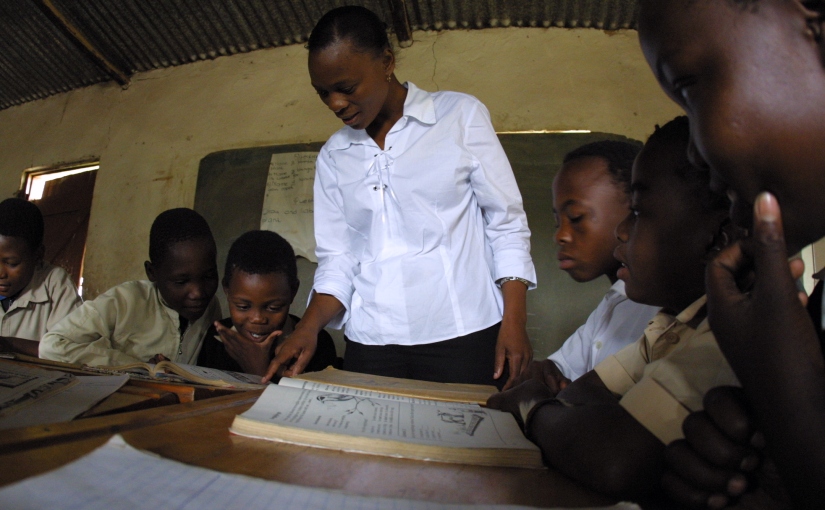By: Claire Martens

In the area of Carolina, the community’s water supply was polluted by mine acid drainage, which leaked into the water system after a particularly heavy rainfall. That was in January this year. The temporary measures which were implemented in the town to ensure water supply were not adequate to the point where an intervention was deemed necessary. Lawyers for Human Rights and the Legal Resources Centre argued that, by failing to supply the minimum standard for basic water supply*, the government was in contravention of the right to access water, as found in the Constitution. The court upheld this argument, much to the pleasure of the Legal Resources Centre; but more particularly, the community of Carolina.
It is easy to see that having access to water is a basic and urgent need. Truthfully, the municipality did not pollute the water, because it was the run-off from the mines which contributed to the problem, but it did fail to adequately deal with the effects. Instead of holding the mines accountable for the crisis, and to avoid a drawn-out court case, the LRC decided that the interests of the community were paramount and much more urgent. Meeting those urgent needs required the LRC to compel the government to do something, and fast. The Minister of Water Affairs criticised the LRC for launching what was called, “an attack on the State”.
At much the same time, the Deputy Minister of Education lambasted NGO’s for resorting to legal action against the Department of Education and accused them of being sensationalist. This was in response to earlier cases instigated in the Eastern Cape. Ironically then, the Minister of Basic Education, in a recent case launched in Grahamstown, felt that the lack of teachers at schools was not an urgent matter. When I heard this, I immediately began to consider what it means to have an “urgent right” and which rights within the Constitution could be considered as such. In fact, I began to wonder if it really matters whether a right is urgent or not; surely all rights are urgent in a country such as South Africa, which is struggling with massive inequality and poverty.
In the education matter, the LRC felt that the Minister was being contemptuous in her manner and approach to the matter. She was certainly not taking an empathetic attitude to the children who are affected by the educational deficiencies. The fact that many children, perhaps thousands, have struggled for six months without a teacher has not seemed to feature in her sympathies. Does it matter which level of state, or which government department, is supposed to be addressing this problem, when the problem is clear-cut, even if no one can agree on its urgency? Is the lack of fulfilment of rights not a matter of urgency, then, but rather a matter of government departments taking responsibility for giving effect to the rights in the Constitution? Whether or not the matter is “urgent” in a strict legal sense, the fact that children have been without a teacher for six months should be treated as extremely urgent by a Minister whose task it is to ensure that children in this country are educated.
The LRC were able, in the Caroline case, to convince the court that the right to access water was an issue that needed to be addressed urgently and, furthermore, addressed by the local government in question. However, even after the victory in the Carolina case, the residents are still waiting for water. The government bodies have denied that they are responsible for rectifying this urgent situation and have now appealed this decision. Countering their denial, Caroline Mathews gives a strong argument for government’s accountability in the water crisis. Furthermore, there have also been some commentators pushing for government employees to take responsibility for their failures, much like Nelson Mandela did in the past, and not continue shifting the blame elsewhere. The matter is not then, about urgency, but about action. In an ideal world, then, the Minster of Basic education would respond because the interests of the children are important, and she has the power to do something about it; not because it’s in her job description.
Disclaimer: The opinions expressed by the Realising Rights bloggers and those providing comments are theirs alone, and do not reflect the opinions of the Legal Resources Centre. The Legal Resources Centre is not responsible for the accuracy of any of the information supplied by the bloggers.
*The minimum standard for water supply:
(a) the provision of appropriate education in respect of effective water use; and
(b) a minimum quantity of potable water of 25 litres per person per day or 6 kilolitres per household per month-
(i) at a minimum flow rate of not less than 10 litres per minute;
(ii) within 200 metres of a household; and
(iii) with an effectiveness such that no consumer is without a supply for more than seven full days in any year.
